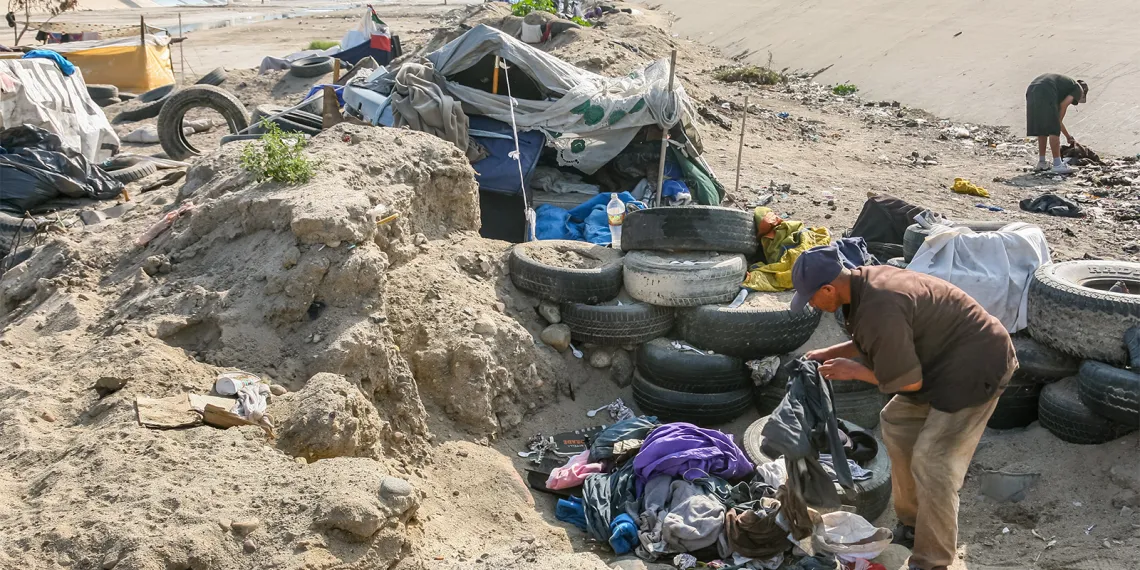Researchers on both sides of the border are committed to conducting data-based social science research to safeguard human rights and human security. A new binational Consortium could help.
For the estimated 1.3 million people who arrive at border crossings between Mexico and the United States each year, migration is a perilous proposition. Those who reach the border face long waits to make asylum claims and risk being detained or sent back to their countries of origin where some face certain death.
Researchers on both sides of the border are studying migration and its threats to human rights and human security, but Anna Ochoa O’Leary worries that working in silos increases the risks that critical information will be lost.
“There are a lot of us doing this work, but we need to collaborate across the borders or we’re only studying half of the story,” says O’Leary, head of the Mexican-American Studies department at the University of Arizona. “We cannot really understand what is going on—or what needs to be done—unless we are collecting and sharing information from both sides of the border.”
Seeking Multicultural Solutions
In 2018, UArizona and National Autonomous University of Mexico (UNAM) established the Binational Research Consortium on Migration, Human Security and Human Rights. The Consortium formalized an agreement between the institutions to collaborate on social sciences research to strengthen data on migration, human rights and human security. The goal is to develop interdisciplinary, multicultural solutions that could inform policy, explains Luis E. Coronado Guel, director of SBS-Mexico Initiatives at UArizona.
“The issues are common to the two countries,” Guel says, “and it was important to construct shared solutions through binational collaborations.”
UNAM has sites on campuses across the U.S., but O’Leary believes researchers wanted to partner with UArizona because of the number of Tucson-based researchers committed to studying migration between the United States and Mexico. The Consortium is focused on fostering those collaborations, supporting the mechanisms and funding to engage in joint projects, promoting mobility between universities for academic staff to conduct research; establishing and promoting alliances between academic degree programs; and supporting the permanent exchange of resources, including teaching materials. The co-publication of research on migration, human rights and human security is also a key Consortium goal.
“We want science on our side,” O’Leary says. “We want to send peer-reviewed research that has been conducted in a systematic way and controlled by logic, rationale and reason [and] use that research to affect policy.”
A Growing Endeavor
The Consortium is a new endeavor and researchers are still discussing initial research projects and academic partnerships, but stakeholders are passionate, committed and eager to capitalize on their unique binational agreement, according to Guel.
In 2019, the Consortium (in conjunction with the UArizona College of Social and Behavioral Sciences) announced its first travel grant opportunities to support research partnerships between UArizona and UNAM. Up to 10 grants are available during the 2019 fiscal year to support travel between Tucson and Mexico City for up to five research proposals. While these projects are currently on hold due to coronavirus restrictions, Guel believes that researchers who participate in Consortium projects in the future will gain a broader understanding of the situation both at the border and on the ground in U.S. and Mexico, and places the universities at the forefront of important political conversations. It is the hope, according to Guel, that collaborations could, “Green light the complexities of the issue and reach out to larger audiences to construct real, national solutions and approaches to these issues.”


